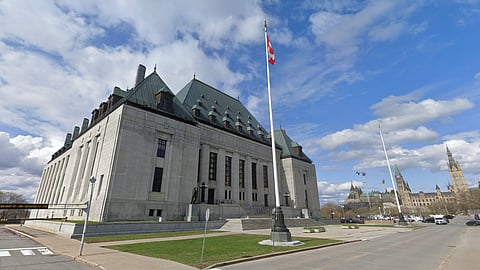

In a decision with far-reaching implications for regional autonomy, the Supreme Court of Canada has declined to hear Ontario’s appeal in a youth-led constitutional challenge to its climate policy — effectively opening the door for courts to scrutinize provincial climate targets under the Charter of Rights and Freedoms.
The case, Mathur et al. v. Ontario, now returns to the Ontario Superior Court of Justice, where the province will have to defend its decision to roll back emissions targets that youth plaintiffs argue violate their constitutional rights to “life, security of the person, and equality.”
The case marks the first time a Canadian court has found that government climate policy could be subject to constitutional limits.
For Western governments like Alberta and Saskatchewan — already in long-standing disputes with Ottawa over energy and environmental jurisdiction — the Supreme Court’s refusal to intervene is a troubling signal.
While the case does not establish binding precedent across Canada, legal observers warn it could embolden future legal challenges to provincial policies that fall short of “national or international climate goals.”
“This sets a concerning tone for provincial decision-making,” said a senior official in Alberta’s environment ministry. “If courts begin second-guessing elected governments on climate targets, that’s a major encroachment on provincial authority.”
The timing of the ruling adds to the political tension.
Mark Carney — former Bank of Canada governor and UN climate envoy — and Canada’s new Prime Minister, has promised “bold” environmental reform.
In his victory speech, Carney declared that “Canada’s old economic relationship with the United States is over,” signalling a more assertive stance on domestic industry and energy independence without any indication of what that exactly means.
With trade tensions rising and American protectionism intensifying, energy-producing regions warn that unilateral climate constraints could undermine both investment and national unity.
Already observers are warning the decision could embolden activists and set a precedent for courts to override regional policies.
The Mathur case began in 2019 when seven Ontario youths — backed by Ecojustice — challenged the Ford government’s decision to weaken its 2030 emissions target.
In October 2024, the Ontario Court of Appeal ruled that while the province had the right to set policy, those policies must not infringe on Charter rights, a finding that opens a new legal frontier in Canadian climate law.
“The Supreme Court’s refusal to intervene has preserved a powerful ruling: that provinces must account for how their climate policies affect fundamental rights,” said Ecojustice lawyer Fraser Thomson. “This is a warning shot for any government dragging its feet on emissions reductions.”
The Ontario government argued that policy decisions, including climate targets, are political matters best left to elected officials, not the courts. But environmentalists say that approach ignores the accelerating urgency of the climate crisis and the burden it places on younger generations.
For energy-producing jurisdictions, the ruling leaves open the possibility that future environmental policies could be challenged under the Charter.
“This is not just about Ontario,” said constitutional law expert Stepan Wood. “The eventual ruling in this case could have serious implications for how provinces across Canada, especially those with emissions-intensive economies, approach climate policy.”
As the case heads back to trial in Ontario, Western leaders are watching closely. The outcome may well shape the next chapter in the tug-of-war between environmental ambition and regional autonomy at a time when the national fabric is already strained by economic, political and geographical divides.
